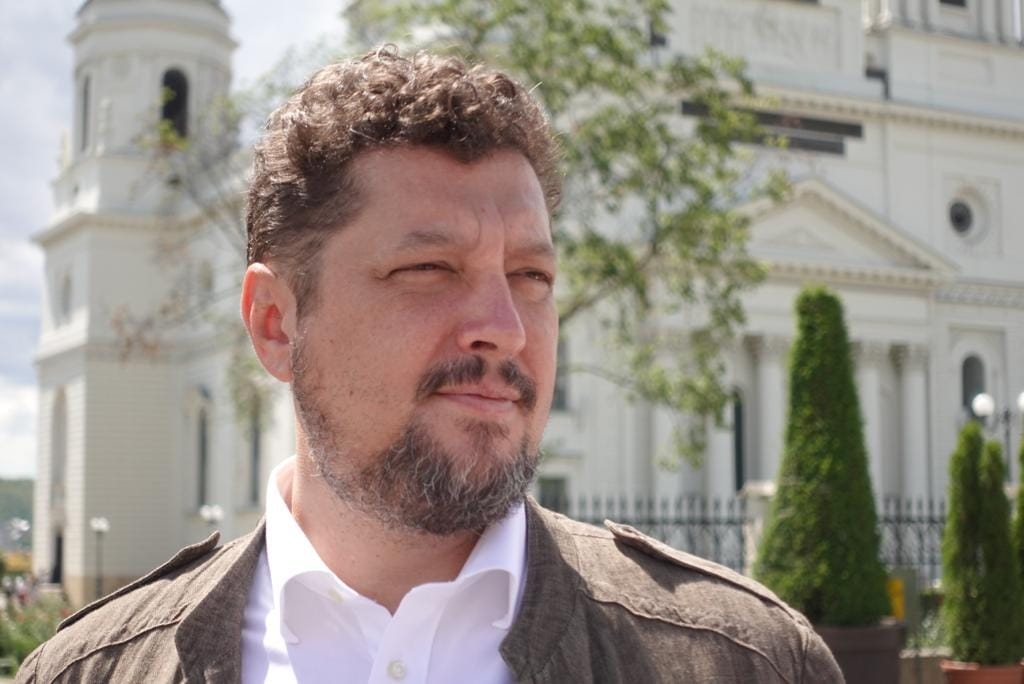Ever since the beginning of the war, the far right has had to appease two constituencies. The more traditional far right had been historically opposed to Russia’s foreign policy: anti-communism and by extension opposition to Russia is the founding myth of the Romanian far-right. This goes way back to Corneliu Zelea Codreanu, leader of the interwar fascist movement The Iron Guard and Ion Antonescu, interwar prime-minister allied with Hitler. The far-right will often justify their deeds (including hate and war crimes) by the need to resist Soviet / Russian influence. Also, the vast majority of Romanians do not sympathise with Russia[1] so every effort to recruit followers from the mainstream needs to account for that.

The present report illustrates the growing import of fringe content and voices into mainstream media with a case study of the cooperation between arguably mainstream Realitatea TV/ Realitatea Plus (in particular the show Behind the Scenes of the Parallel State with Anca Alexandrescu) and the fringe one-man-show Luis Lazarus Zeus TV (one of the most influential promoters of far-right, anti-vaccine and Kremlin-aligned narratives)The present report illustrates the growing import of fringe content and voices into mainstream media with a case study of the cooperation between arguably mainstream Realitatea TV/ Realitatea Plus (in particular the show Behind the Scenes of the Parallel State with Anca Alexandrescu) and the fringe one-man-show Luis Lazarus Zeus TV (one of the most influential promoters of far-right, anti-vaccine and Kremlin-aligned narratives).

Case study: Perceptions and context for the self-victimising declarations of a pro-Kremlin Romanian cleric from Ukraine
February 1, 2023
In Romania, the attitude towards the Romanian minority in Ukraine has been historically a vulnerability to pro-Kremlin propaganda. Nationalist and pro-Kremlin voices argue that Ukraine is systematically hostile towards the Romanian minority, continuing the policies of Soviet times. In that, they exaggerate the real issues that do exist in Ukraine, as well as positions taken by Romanian diplomacy in its efforts to promote the rights of the Romanian diaspora. The result is an overlap between mainstream and radical positions, which is exploited by radical voices to gain legitimacy.

9 January 2023
On December 13th the Ukraine Rada adopted a new law on ethnic minorities aimed ostensibly at counteracting Russian influence but also allegedly affecting other minorities including Romanians, Moldovans, Hungarians and Poles. The law was poorly received both by the Romanian Ministry of Foreign Affairs[1] and by the public opinion. Romanian critics have complained that the law is discriminatory, disloyal to the Romanian state (due to the latter’s involvement in helping Ukraine) and running counter to the recommendations of the European Commission. The Romanian MFA also complained specifically that Ukraine did not consult either the Venice Commission or the Romanian state[2]. Other voices counteracted saying that the law was an effect of the war and Romanian critics should refrain for the time being[3]. Hungary had similar complaints[4].

9 January 2023
This report will be looking at recent evolutions in the share of voice of the main pro-Russian actors on Facebook. It is important to note that the main voices who promote toxic narratives about the war in Ukraine are, by and large, the same voices who promote far-right narratives and the same people who have promoted anti-vaccination narratives. All these narratives generally align with the Russian interests in Romania. The purpose of Russian information operations is not necessarily to sway the Romanian population to regard the Kremlin’s actions favourably, but rather to sow discord within Romanian society and between Romania and its allies. As such, it is relevant to also look at their relative influence more broadly, as we do in this report.

